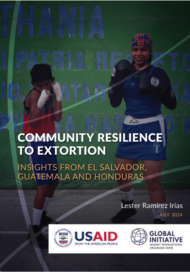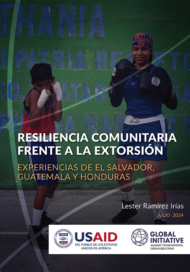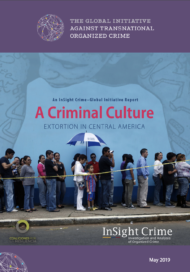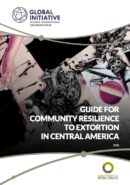This report seeks to understand how communities in El Salvador, Guatemala and Honduras build and sustain their resilience to extortion, especially in light of state-led anti-extortion measures under emergency regimes in El Salvador and Honduras.
Through six case studies, the report explores the varying contexts of community resilience, the factors contributing to its development and long-term sustainability, and the communities’ capacity to absorb the impacts of criminal governance, adapt, and transform their environments.
The findings reveal a shifting risk landscape for communities. Under emergency regimes, while the incidence of extortion and homicides has decreased, there has been an increase in restrictions on fundamental rights and freedoms.
The case studies highlight different forms of resilience, driven by diverse actors such as women victims of extortion, private sector organizations, and foundations promoting sports and community development.
Resiliencia comunitaria contra la extorsión
Experiencias de El Salvador, Guatemala y Honduras
Este informe pretende comprender cómo las comunidades en El Salvador, Guatemala y Honduras construyen y mantienen su resiliencia frente a la extorsión, así como los efectos que han tenido las medidas estatales antiextorsión implementadas a través de regímenes o estados de excepción en El Salvador y Honduras.
Mediante seis estudios de caso, se exploran los diferentes contextos de la resiliencia comunitaria, los factores que contribuyen a su desarrollo y sostenibilidad a largo término, así como la capacidad que tienen las comunidades para absorber los impactos y el estrés de la gobernanza criminal, y para adaptarse y transformar sus vidas y entornos comunitarios.
Los hallazgos de este estudio revelan que las comunidades están viviendo una transición en el entorno de riesgo. En regímenes de excepción, aunque se ha visto una reducción en la incidencia de extorsión y homicidios, han aumentado las restricciones a las libertades y los derechos fundamentales de las personas.
Los seis estudios de caso abarcan diversas expresiones de resiliencia, algunas impulsadas por mujeres víctimas de extorsión y otras por el sector privado organizado o fundaciones que promueven el deporte y el desarrollo comunitario.





